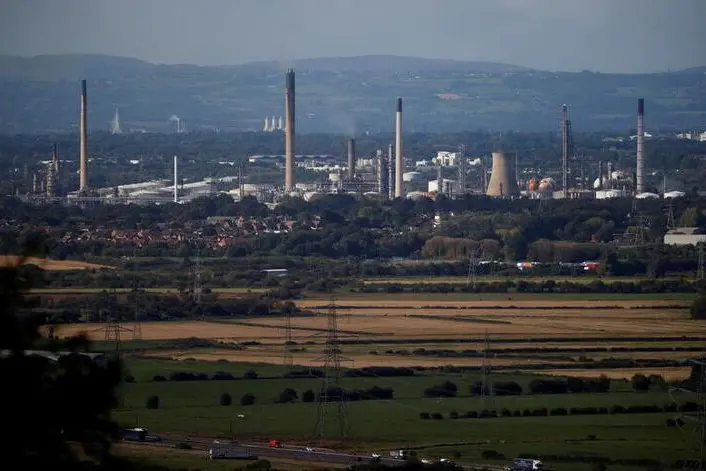PHOTO
Britain is proposing to build new gas plants to improve energy security and risks facing blackouts without them, the government said on Tuesday.
As part of efforts to meet climate targets and boost energy security, Britain is seeking to increase its nuclear and wind power capacity but said new gas plants will also be needed to provide back up.
The Department for Energy Security and Net Zero (DESNZ) said new gas plants will be needed beyond 2030, with energy minister Claire Coutinho expected to set out a new strategy for gas in a speech to be delivered at Chatham House in London later in the day.
“Without gas backing up renewables, we face the genuine prospect of blackouts ... We will not let ourselves be put in that position. And so, as we continue to move towards clean energy, we must be realistic,” she is expected to say.
Critics have warned a push for new gas plants could hamper the country's target of reaching net zero emissions by 2050 and leave it more reliant on expensive fossil fuels.
"The government's cunning plan to boost energy security and meet our climate goals is to make Britain more dependent on the very fossil fuel that sent our bills rocketing and the planet's temperature soaring," said Dr Doug Parr, policy director at Greenpeace UK.
Currently around a third of the country's electricity comes from gas plants, a reliance that contributed to soaring bills when gas prices hit record highs following Russia's invasion of Ukraine.
DESNZ also said it is proposing a location-based method to determine how much consumers should be charged for the electricity they use.
Currently, wholesale electricity prices are set on a national level but under the new zonal market proposal consumers would pay different rates depending on where they are located, with those close to power generators likely to pay less.
“A significant proportion of our energy is located away from areas of high demand ... Different wholesale prices could better match supply and demand and bring down costs for people across the country,” DESNZ said in a statement.
Zonal electricity pricing is already used in some European countries such as Italy, Sweden and Norway.
The announcements are part of a consultation into the Review of Electricity Market Arrangements (REMA) which was launched in 2022 to reform the electricity market. (Reporting By Susanna Twidale; Editing by Susan Fenton, Kirsten Donovan)





















